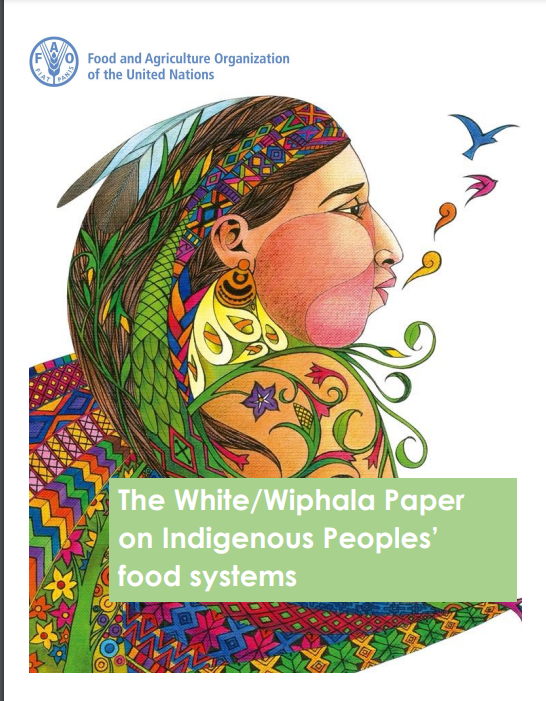Research Papers/Articles

Traditional Knowledge and Intellectual Property Rights: An Indian Perspective
2011
Author(s): Bala A
Biopirates use Intellectual Property Rights (IPR) as tool to steal traditional knowledge and exploit biological resources and this happens because of some limitations in IPR system. Therefore it is required to introduce some sui-generis elements in the existing IPR system.

Strategies to Incorporate and Support Indigenous Knowledge (IK) in Teacher Training Education: Lessons and Insights for Higher Education Institutions in Namibia.
2023
Author(s): Amuthenu SH
The study aims to explore on how indigenous knowledge can be incorporated effectively in the training of teachers in Namibia.

The White/Wiphala Paper on Indigenous Peoples’ food systems
2021
Author(s): Food and Agriculture Organization
This paper highlights the risks of not taking on board the time-tested contributions that Indigenous Peoples have and continue to make for sustainability and territorial management, amongst other dimensions. It also addresses the ongoing policy contradictions and limitations in meeting the Sustainable Development Goals (SDGs), UN Climate Change Conference of Parties’ (COP) debates and international agreements about sustainability.
Indigenous Peoples in Domestic Work – Facing Multiple Discrimination and Disadvantage
2015
Author(s): Oelz M, Dhir RK
This study focuses on Indigenous women facing multiple forms of disadvantage and discrimination because of gender and identity, from both within and outside communities.
Guidelines for Combating Child Labour Among Indigenous and Tribal Peoples (ITPs)
2011
Author(s): International Labour Office
This guide provides practical guidance on how to address the specific needs and rights of indigenous peoples, and thus combat child labour among indigenous children.
Indigenous Peoples and the United Nations Human Rights System
2013
Author(s): United Nations Human Rights
This Fact Sheet provides an overview of the United Nations human rights system and the rights of indigenous peoples.

The Traditional Knowledge Advantage: Indigenous peoples’ knowledge in climate change adaptation and mitigation strategies
2016
Author(s): Chianese F, Cordone A, Darlong V, Firmian I
The inherent dynamism of indigenous peoples’ knowledge systems lies at the heart of their ability to adjust and modify their actions in response to environmental change. The diversity of resilience systems and capacities to adapt to climate change directly corresponds to the diversity of indigenous peoples and the different contexts they inhabit.Â
Briefing paper on Indigenous Peoples’ Rights and the 2030 Agenda
2017
Author(s): United Nations Department of Economic and Social Affairs
There is a strong commitment in the 2030 Agenda to empower and engage indigenous peoples in implementing and reviewing progress in achieving the goals. It is essential that the 2030 Agenda implementation is taken into account the principle of free, prior and informed consent and adequate consultations related to indigenous peoples’ lands and development priorities.
Intellectual Property and Arts Festivals
2016
Author(s): World Intellectual Property Organization
This brief identifies the main intellectual property challenges faced by organizers of arts festivals and outlines some practical elements of an effective intellectual property management strategy.
Developing a National Strategy on Intellectual Property, Traditional Knowledge and Traditional Cultural Expressions
2016
Author(s): World Intellectual Property Organization
This brief summarizes the legal, policy and operational issues that need to be considered in developing a national strategy for the intellectual property protection of traditional knowledge and traditional cultural expressions, also known as folklore.



